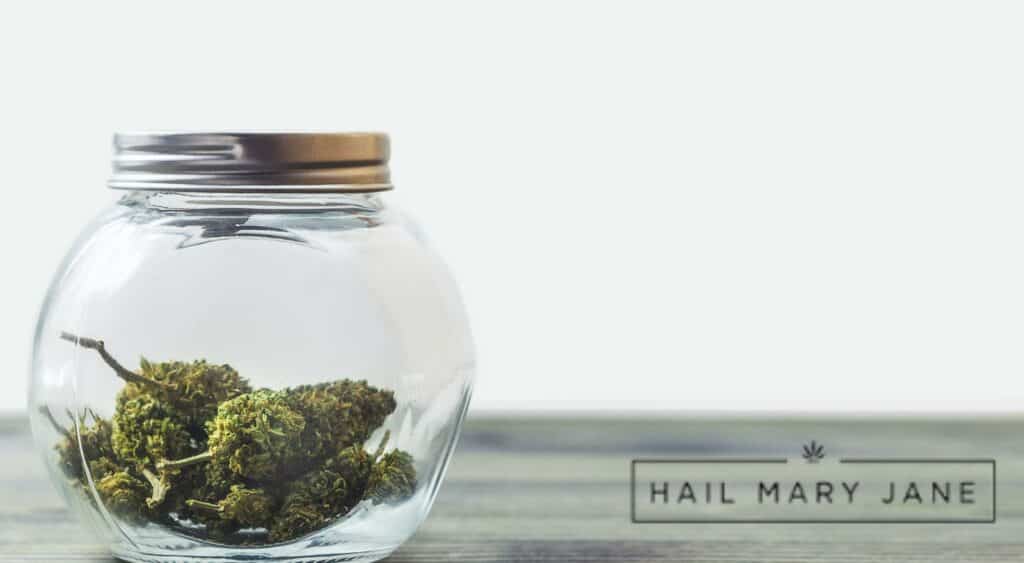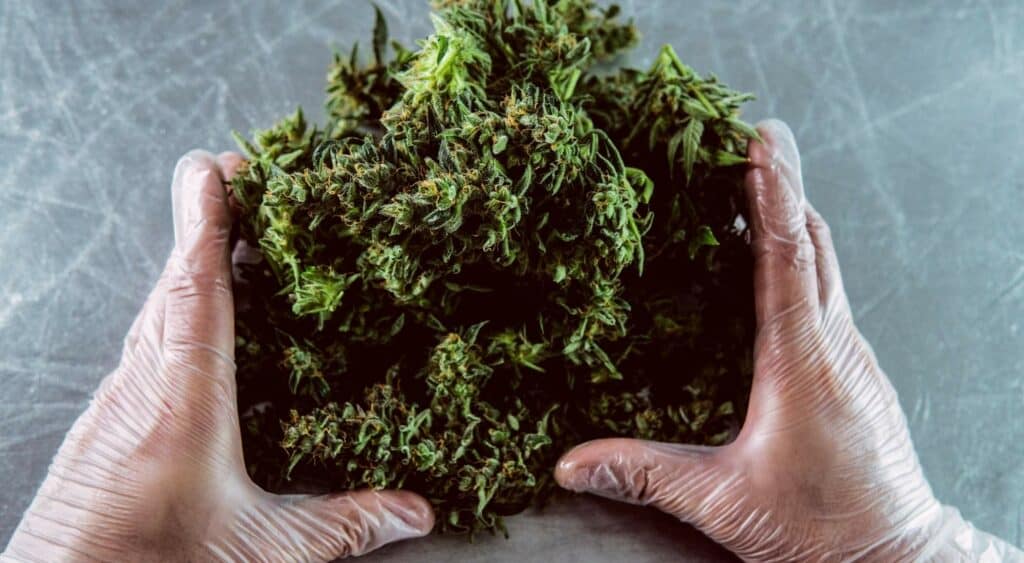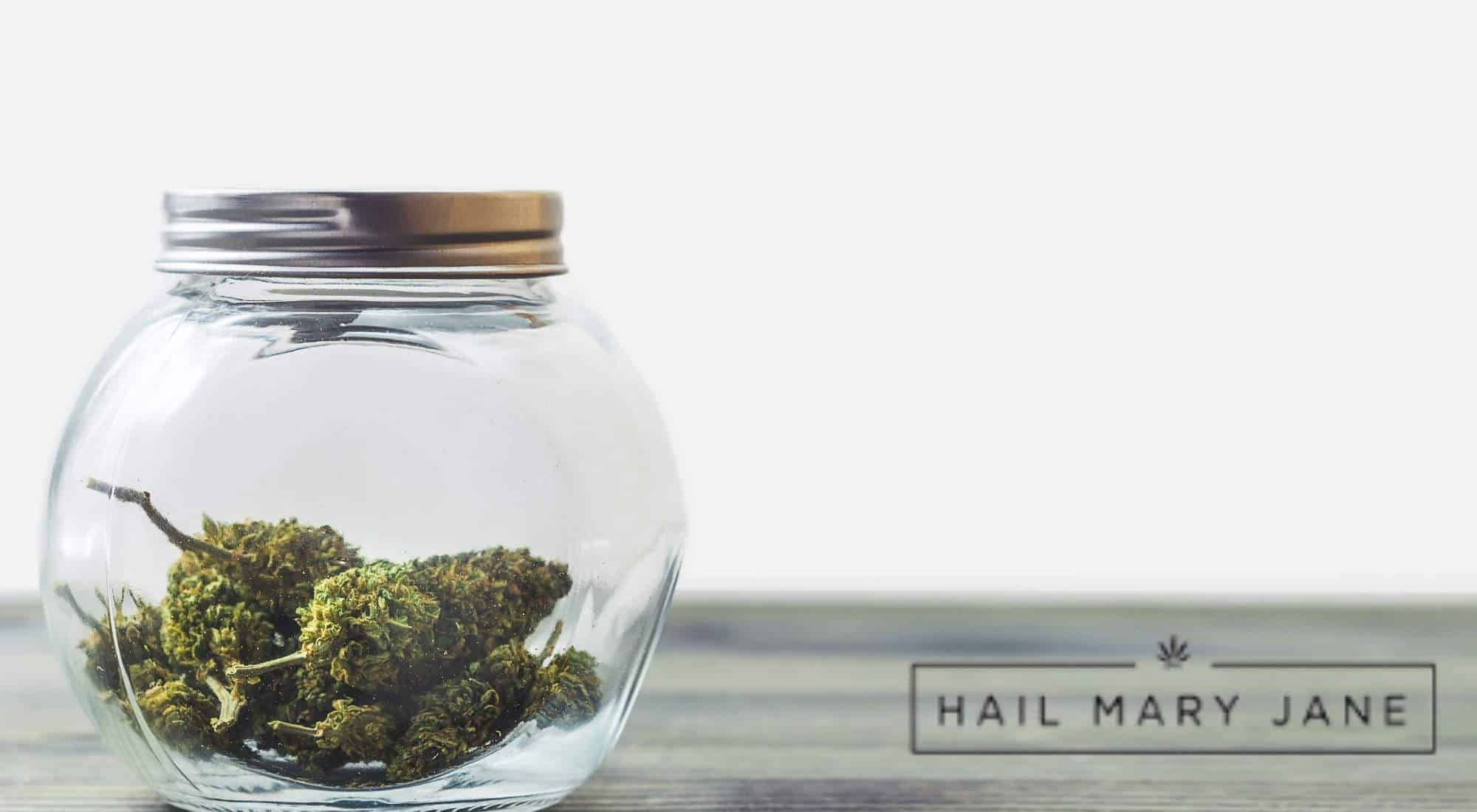You have been hearing about the benefits of CBD for years. It has been known to help with:
- Anxiety and depression
- Pain
- Skin issues
- High blood pressure
- And more
But lately, the term CBG has started popping up. That might have you a little confused because it sounds just like CBD — but is it the same thing?
It actually isn’t. Although these two compounds do have many similarities, there are also some important differences.
In this article, we will walk you through those differences and help you understand which compound works best for different conditions and problems.
Table of Contents
- How Are CBG and CBD Similar?
- What Is the Difference Between CBD and CBG?
- 3 Differences Between CBD and CBG
- Health Benefits of CBG vs. CBD: 4 Potential Benefits of CBG
- Treatment of Common Ailments with CBG and CBD
- Which Is Right for You — CBG or CBD? The Experts at Hail Mary Jane Can Help Guide Your Decision
How Are CBG and CBD Similar?
CBG (cannabigerol) and CBD (cannabidiol) are two different types of cannabinoid compounds found in the Cannabis plant. There are over 100 of these compounds, but we just don’t know as much yet about CBG as we do about CBD and THC.
One thing we do know is that CBG is the decarboxylated form of cannabigerolic acid, which is the parent molecule from which all other cannabinoids are synthesized. This means that they all start as CBG before being converted to other forms.
CBG and CBD are both non-intoxicating, so they won’t get you high the way THC does. And studies have shown that they interact with the same receptors in the body, albeit in different ways.
CBG and CBD both seem to have anti-inflammatory effects as well. But that may be where the similarities end. Let’s delve into how these two compounds are different.

What Is the Difference Between CBD and CBG?
Although they both involve the body’s endocannabinoid system, CBD and CBG act in different ways. CBD produces and regulates cannabinoids while CBG works on the receptors. CBG also seems to have some different functions and health benefits than CBD.
We still aren’t sure about all differences between CBD and CBG because we don’t have that much information yet. While countless studies have been done on the properties and effects of CBD, CBG is less common and hasn’t been studied as much — especially in clinical trials.
So let’s look closer at the information we do have.
Check Out the Video Below to Learn Some of the Key Differences and Similarities Between CBD and CBG.
3 Differences Between CBD and CBG
The main differences we’ve seen between CBD and CBG in the limited studies that have been done on cannabigerol are their structure and how they can be used.
#1: Molecular Structure
The chemical makeup of CBD and CBG is different. Think back to chemistry class when you learned to draw out the structures of compounds.
These cannabinoids both have carbon, hydrogen, and oxygen atoms — but they are arranged differently. Because of this, they interact differently with the body’s receptors.
The chemical makeup of CBD and CBG also helps determine their bioavailability. This is the ability of a drug or substance to be absorbed into and used by the body.
#2: Pharmacology
The Journal of Pharmacology and Experimental Therapeutics has published a study showing that CBG acts similarly to CBD at the cannabinoid receptors, but that it is unique in how it interacts with other receptors.
Because of this, CBG may have different benefits and be used to treat other kinds of ailments than CBD.
#3: Appetite Stimulation
Health Benefits of CBG vs. CBD: 4 Potential Benefits of CBG
There is quite a bit of content about CBD online — and on our site specifically.
We’ve given you lots of information about it in our blog articles. We’ve also reviewed many CBD products so you’ll know which ones are best.
So let’s focus here on what we know of the health benefits of CBG, a newer alternative.
#1: CBG Has Antibacterial Properties
Research has shown that CBG shows extremely strong antibacterial actions against methicillin-resistant Staphylococcus aureus (MRSA). That is exciting news because this bacteria can be resistant to antibiotics that are usually used to treat staph infections.
Having a natural way to kill serious bacteria could go a long way in combating antibiotic resistance.
As the Bosnian Journal of Basic Medical Sciences stated:
“The discovery of antibiotics is undoubtedly one of the most important scientific achievements in modern medicine and has saved millions of lives since their discovery. However, their misuse has resulted in the emergence of antibacterial resistance, which is a significant threat to global human health. Therefore, there is an urgent need to discover new classes of potent antimicrobial agents with novel modes of action.”
CBG just may be one of these new microbial agents.
#2: CBG May Fight Cancer Cells
There have been exciting discoveries that cannabinoids — CBG among them — may have therapeutic potential in cancer treatment.
CBG has been shown to act on receptors that lead to cancer cell growth, specifically:
- Colorectal
- Breast
- Prostate; and
- Ovarian
This doesn’t mean that CBG won’t work on other types of cancer cells, just that they haven’t been studied yet.
Again, this is an amazing possibility in the world of alternative medicines for serious diseases.
#3: CBG Has Anti-Inflammatory Effects
CBG has anti-inflammatory effects on the immune system that make it a potential treatment option for autoimmune disorders such as:
- Inflammatory Bowel Disease — In conditions like Crohn’s disease and ulcerative colitis, chronic inflammation and irritation of the intestinal lining occur because of an exaggerated immune response. CBG has been shown to reduce this inflammation.
- Psoriasis — The dry, scaly skin common in psoriasis comes from the rapid reproduction of skin cells caused by T-cells making inflammatory chemicals. CBG appears to inhibit overactive T-cells, thus treating the condition.
Because inflammation and oxidative stress are key players in neurodegeneration, CBG can help in this area as well. Studies have shown that CBG and other Cannabis compounds can wield neuroprotective actions against inflammation and oxidative stress.
This may be helpful in the fight against:
- Parkinson’s Disease
- Multiple Sclerosis; and
- Amyotrophic Lateral Sclerosis (Lou Gehrig’s Disease)
#4: CBG May Help Treat Glaucoma
People have been using medical cannabis to treat glaucoma for years, but it turns out that CBG may be the component responsible for its effectiveness in that area.
The endocannabinoid receptors we have previously discussed are found throughout the eye and participate in the regulation of:
- Retinal neurotransmission
- Neuroplasticity; and
- Neuroprotection
They are also responsible for making and putting out aqueous humor, the clear fluid that fills the space at the front of the eyeball between the lens and cornea.
Different cannabinoids including CBG have been shown to work with those endocannabinoid receptors to decrease the intraocular pressure glaucoma causes. A reduction in pressure is basically the equivalent of a cure for this condition.

Treatment of Common Ailments with CBG and CBD
We are going to discuss a few common ailments that many people use cannabinoids to treat. So which one is better for them, CBG or CBD?
CBG vs. CBD for Sleep
Although CBD alone isn’t known primarily for helping with sleep, it does promote relaxation and calmness without making users groggy. CBD sleep aids usually combine CBD with melatonin or other sleep-inducing substances that help the body unwind as it is lulled into slumber.
There hasn’t been enough research on CBG and sleep to let us know if it works better or worse than CBD in this area. However, because of the entourage effect, taking CBG and CBD together could enhance the calming properties and promote better sleep.
CBG vs. CBD for Stress
Many people — perhaps even the majority of users — are drawn to CBD because it can relieve stress and anxiety. One way it can do this is to counter the body’s response to the body’s stress responses by lowering blood pressure and dilating blood vessels.
CBG and CBD both attach to receptors in the endocannabinoid system that indirectly affect the brain’s chemistry related to stress. So again, they may work better when used together.
And again, we just don’t have enough scientific evidence on CBG to know how it compares to CBD alone for stress.
CBG vs. CBD for Pain
Pain is the second biggest reason people give for taking CBD. It seems to be particularly effective for relieving minor discomfort associated with regular exercise.
CBD molecules communicate with CB2 receptors connected to the peripheral nervous system, so it may have a direct effect on soothing soreness.
But there has also been some proof that CBG helps with minor soreness and discomfort. In fact, it seems to work best on swelling of the skin.
So in this case, if you’re wondering which compound is better for pain, it may depend on the kind you’re experiencing.
Which Is Right for You — CBG or CBD? The Experts at Hail Mary Jane Can Help Guide Your Decision
Although we have much more information about CBD than we do about CBG, the emerging studies show promise about this newer compound.
Just as we have been doing for years with other Cannabis-related substances, Hail Mary Jane will guide you through which compound is right for you and your needs.
We have tons of reviews to let you know which CBD products we think are best, and we are looking forward to adding a category for CBG as well.
We love our community and want to be here for you every step of the way — whether you’re looking for relief from a chronic disease or just wanting to have a little fun. Let us help you find the best CBG and CBD products out there!





There is no perfect risk-free way to do it. You have to accept that you are taking a risk and do your best to minimize it. If you don’t have experience preparing packages and mailing them then you should find someone with experience to teach you or do it for you. Some veterans say USPS. Some say FEDEX.for good stuff email sevenleaves7l@gmail.com